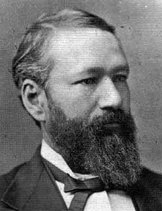Origin

This occurred at a time when every facility had separate accommodations for each race. People had to sit in their assigned sections. Homer Plessy was only 1/8 African-American. The state of Louisiana still considered him black. Since he could be considered white, and he considered himself white, he boarded a train car in the whites only section. He was immediately asked to move and he refused. He was arrested, charged for breaking the law, and fined. He took his case to the supreme court.
Arguments and Court's Decision
Plessy was against segregation and argued that it violated the 'equal protection clause' of the 14th amendment. It gives all citizens equal protection under the law. In its defense, the state of Louisiana said that the laws of segregation were made in the interests of the people. Both races were content with the separate facilities, and the quality of each races' accommodations were equal. The Supreme Court ruled in favor of the state of Louisiana saying that 'separate but equal' was okay.
